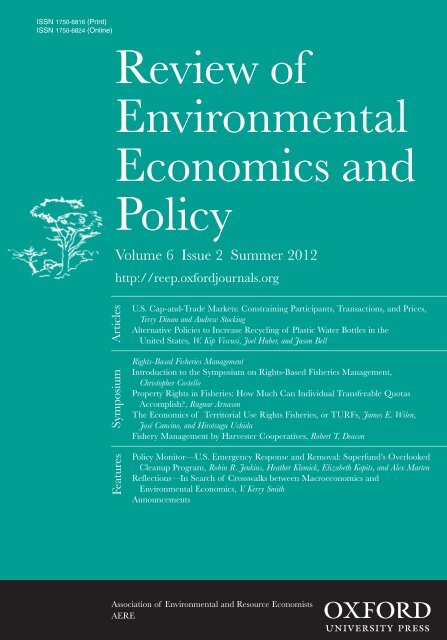搁浅资产:研究差距及其对气候政策的影响
IF 6.6
3区 经济学
Q1 ECONOMICS
引用次数: 2
摘要
许多类型的资本存量——自然的、物质的和人类的——会因为气候政策而失去价值,并变得“搁浅”。这些资产的所有者将抵制气候政策。我们调查了最近的气候经济学文献,并强调了与搁浅资产相关的研究差距。根据最近的政治学文献,我们认为经济学家可以通过更加强调资产搁浅的分配后果来提供更有效的政策建议。我们建议的政策重点是针对与能源生产和消费相关的新资本存量:禁止化石密集型投资,鼓励对可再生能源和节能资本的投资。与基于价格的机制相比,这些政策面临的阻力可能更小,并可能提高未来碳定价的可信度。本文章由计算机程序翻译,如有差异,请以英文原文为准。
Stranded Assets: Research Gaps and Implications for Climate Policy
Many types of capital stocks—natural, physical, and human—stand to lose value because of climate policy and to become “stranded.” The owners of such assets will resist climate policies. We survey the recent climate economics literature and highlight research gaps related to stranded assets. In line with recent literature in political science, we argue that economists can provide more effective policy recommendations by putting greater emphasis on the distributional consequences of asset stranding. Our recommended policies focus on targeting new capital stocks related to energy production and consumption: banning fossil-intensive investment and encouraging investment into renewable and energy-efficient capital. These policies may face less resistance than price-based mechanisms and could improve the credibility of future carbon pricing.
求助全文
通过发布文献求助,成功后即可免费获取论文全文。
去求助
来源期刊
CiteScore
10.80
自引率
0.00%
发文量
25
期刊介绍:
The Review of Environmental Economics and Policy fills the gap between traditional academic journals and the general interest press by providing a widely accessible yet scholarly source for the latest thinking on environmental economics and related policy. The Review publishes symposia, articles, and regular features that contribute to one or more of the following goals: •to identify and synthesize lessons learned from recent and ongoing environmental economics research; •to provide economic analysis of environmental policy issues; •to promote the sharing of ideas and perspectives among the various sub-fields of environmental economics;

 求助内容:
求助内容: 应助结果提醒方式:
应助结果提醒方式:


